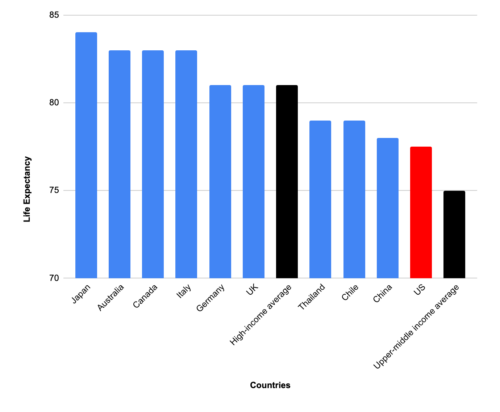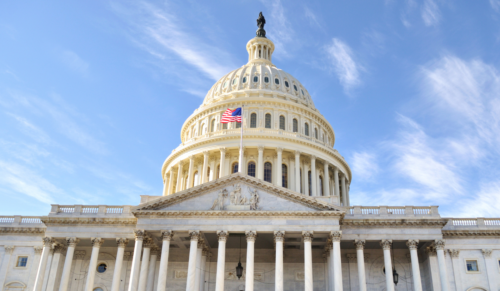Why the U.S. is No Longer a Leader in Environmental Policy
By: / 04.22.2011
 The past decade has been extremely depressing for the U.S. environmental community. Rather than lead the world on climate and energy policy, the U.S. has fallen further behind our developed-world allies, and now even lags behind rising powers such as China and Brazil.
The past decade has been extremely depressing for the U.S. environmental community. Rather than lead the world on climate and energy policy, the U.S. has fallen further behind our developed-world allies, and now even lags behind rising powers such as China and Brazil.
The question arises: Why has America not been able to muster the political will to usher in a clean energy future and join forces with the other rich (and not so rich) nations of the world to combat climate change?
The answer is, of course, complex. Institutional barriers in the American political system favor rural states over urban ones and demand super-majorities that are almost impossible to muster; powerful industrial interests continue to disproportionately sway politicians while funding vast networks of misinformation; and one of our two major parties has embraced a virulently anti-science position that is unprecedented in modern history.
But there is something even more fundamental that the environmental community has failed to grasp. It’s not that Germans, Canadians, Norwegians, and French have a greater love for the environment, or that these countries lack parochial and special interests and powerful corporations. Above all else, what differentiates Americans from these other wealthy nations is our much greater degree of economic insecurity.
The reality is that a bold new energy and climate change policy would inevitably result in dislocations in certain industries and upset long-established ways of life in many regions; in addition, it would lead to higher prices for basic commodities such as gas, home heating oil, and food.
In societies where there are strong social safety nets―universal healthcare, universal preschool, strong support for new parents, significant investments in public transportation, and sustained support for higher education ―the changes wrought by a paradigm shift in energy will tend not to result in hugely destabilizing effects across whole towns and communities. In fact, with good planning and investments in critical infrastructure, strong environmental policies can result in overall improvements in the quality of life for nearly everyone.
Throughout much of the developed world, citizens are willing to pay prices for gasoline that would lead to riots in American streets, because they know that the government revenue raised by high gas taxes is used for programs that directly benefit them. In other words, ten-dollar a gallon gas isn’t such a big deal when everyone has great healthcare, great public transportation, and free high-quality schooling.
Many environmentalists criticized President Obama for using virtually all of his political capital to pass healthcare legislation before a comprehensive energy bill. Though many of the benefits of that healthcare bill won’t go into effect until years from now, and support for the legislation still suffers from the copious amounts of misinformation peddled by the bill’s detractors, the goal of universal healthcare will ultimately serve the environmental community. The question is whether it will be too late to matter.
The bottom line is that people are much more willing to support environmental policies that come with large risks and disruptions to their way of life when other policies are in place to shield them from excessive risk and instability. Progressive environmental policies must rest on a foundation of broader investments in social safety nets. One of the primary reasons that the U.S. has fallen behind the world on environmental policy is because we have fallen behind on virtually all measures of economic security; the two are intimately linked.






